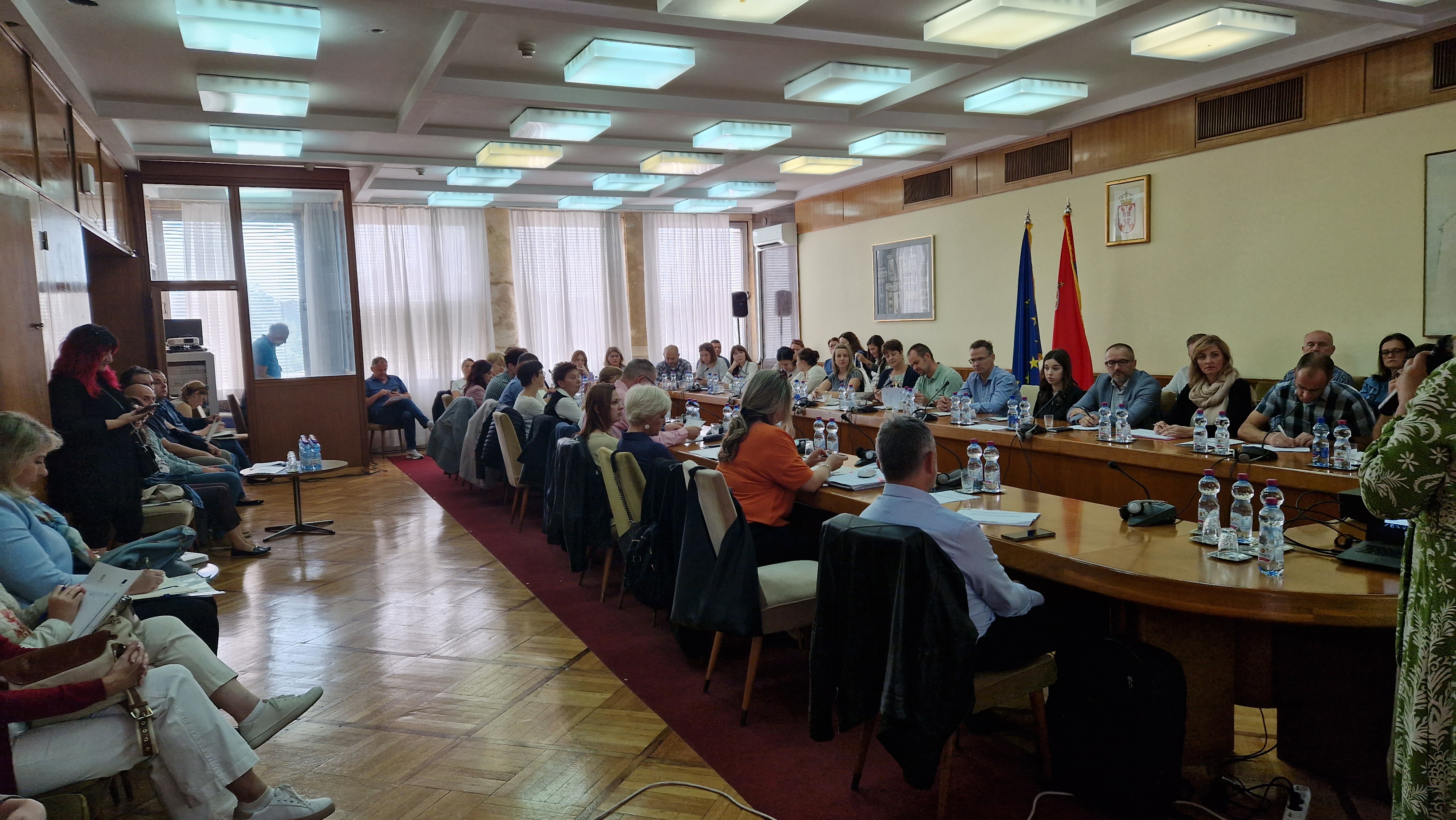With the support of the PLAC III project, a draft new Law on Plant Protection products that includes provisions on sustainable use of pesticides was prepared.
Plant protection products and sustainable use of pesticides make part of the Negotiation Chapter that Serbia did not open yet and in which, according to the European Commission report, a substantial progress is needed to be made.
Serbian Law on Plant Protection Products, adopted in 2009, partially transposed Directive 91/414/EC on the placing of plant protection products on the market, and, only to a lesser extent, was aligned with the provisions of Regulation No 1107/2009 on the placing of such products on the market and Directive 128/2009/EC establishing a framework for Community action to achieve the sustainable use of pesticides (Framework Directive), adopted in the same year. In addition, the Law was partially aligned with the provisions of Regulation 396/2005 on maximum residue levels of pesticides in or on food and feed of plant and animal origin. In March 2019, the Law was amended, which enabled further alignment with Framework Directive. The transposed provisions from the Framework Directive cover procedures for the sustained use of pesticides, provisions related to periodic inspection of equipment in use of pesticides, training of professional users of pesticides that do not endanger the life and health of humans and animals and the environment, and to conditions and method of handling, storage, transport and disposal of pesticides.
Amendments to the Law on Plant Protection Productsto a large extent aligned Serbian legislation with the provisions of Regulation 1107/2009 and Regulation 396/2005.
The Law governs two major areas, the registration of plant protection products and the sustainable use of pesticides.
To achieve a greater degree of compliance of the national legislation with the EU legal framework in the field of sustainable use of pesticides and plant protection products (together with changes to the Framework Directive adopted in the meantime) the National Plan for Adoption of the Acquis envisages the adoption of the new Law on Plant Protection Products and the law on sustainable use of pesticides. This will provide clearer regulatory framework and grounds for greater protection of human and animal health, the environment enabling the production and placing on the market of safe food.
The PLAC III project has provided support to the Ministry of Agriculture, Forestry and Water Management (Plant Protection Directorate) in the drafting of amendments to the Law on Plant Protection Products. At the workshop held in Belgrade on October 5, project experts Zorka Prljević and Jernej Drofenik presented the relevant Union acquis as well as proposal to amend the Law, which will further harmonise it with Regulation 1107/2009. They also presented the results of legal gap analysis of relevant national legislation compared to the requirements of the Union acquis.
Prljević presented the legal framework of the EU for plant protection products and sustainable use of pesticides. In the latter, as she said, the goals are to increase the use of integral plant protection, reduce the use of pesticides, increase the use of low-risk pesticides and organic production. The essence of the EU's sustainable pesticide use policy, she said, is the obligation to ensure the availability of information and tools.
Drofenik presented the proposed amendments to the Law on Plant Protection Products, drafted in cooperation with the Ministry, and the largest part of which refers to the registration procedure of plant protection products. The drafted law includes provisions on the sustainable use of pesticides as well. He also presented the results of the legal gap analysis, saying that the current registration procedures are largely in line with EU requirements, while the mutual recognition of registrations is fully in line with EU requirements. Citing the experience of Slovenia, he recommended the strengthening of administrative capacities as well as the digitization of the registration procedure.
The workshop was attended by the representatives of the Plant Protection Directorate of the Ministry of Agriculture, Forestry and Water Management.




